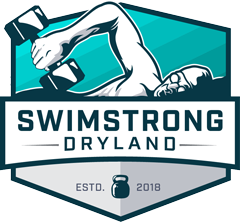Avoiding Burnout
Everyone knows an athlete who loved to swim, looked forward to going to practice, improved rapidly, and had a bright future ahead of them, who all of the sudden lost their passion for the sport. It can seem to come from nowhere, and it can be difficult for parents and coaches to understand. The investment of time and energy from the side of parents and coaches has only grown since day one, so it can be even more confusing that an athlete in the midst of resounding support could still find themselves burned out. But it happens, and while there are some uncontrollable factors that contribute to burnout, it’s a tragedy to see an athlete fail to realize their potential and lose their passion due to controllable factors.
As a quick note, when I refer to “burnout” in this article, I am not talking about athletes who never had much interest in the sport. I’m talking about athletes who once loved the sport, and no longer have the same passion for it—athletes who have grown to feel apathetic towards swimming. There are five major factors that contribute to burnout: overtraining, injuries, early specialization, negative external pressure, and finally, improper psychology (externally and internally). Let’s dive into each of these a little deeper.
Overtraining simply means stressing your body with more work than it is capable of handling. This is one of the most common errors committed by coaches and parents. With good intentions they can inadvertently push a young athlete’s body to the point where it is continually being broken down and never fully recovers. When the swimmer gets to this point, they don’t function at a high level (mentally, physically or emotionally), because they are running on fumes. Feeling like this becomes equated with swimming, and it follows that they begin to despise being at practice, completing workouts, and competing. Injuries are often coupled with overtraining, because as the body is broken down, it becomes more susceptible to injury. When a young athlete gets injured and faces multiple setbacks, it can really wear on them physically, mentally, and emotionally.
Early specialization is another common factor in burnout (see my full article on “The Fallacy of Early Specialization” for a more in depth look). When young athletes are asked to focus on one specific sport and mode of training from a young age, they ultimately limit their potential success. Specializing too early limits not only their physical potential, but also their potential to fully enjoy the sport. External pressure, another factor in burnout, is often linked to early specialization. It usually starts from a desire to see the young swimmer succeed, but external pressure can also come from some coaches or parents placing an over-emphasis on winning at a young age. Living with a “winning is the most important thing” mentality can cause young athletes to hate the sport, especially if they aren’t always winning!
The last factor I listed, improper psychology, is so often misunderstood. Different ages need to be coached and motivated differently, and training the athlete’s mind is just as important as training their body. All physical work flows from the mindset in place. Working to strengthen the mindset changes the way a young athlete views swimming, changes their work ethic, and thus changes the results they see in the water. Without an understanding of how an athlete is developing mentally or how to properly motivate and inspire their swimmers… it can be a set up for failure and frustration. Coaches and parents are some of the most influential voices in the young athlete’s life, so a proper understanding of youth sport psychology is essential for their success!
So how do you avoid all of these burnout traps? Well, overtraining and injuries can be avoided with a properly designed swim and dryland program. Ideally this program is designed in phases, with thought towards the athlete’s “training age” and providing time for recovery. Early specialization can be avoided by listening to trusted coaches and trainers who are certified to make the decision about when an athlete is at the stage where they will benefit from further specialization. Negative external pressure can be avoided by having coaches and parents educate themselves on the psychology and physiology of their young athletes. A deeper understanding of where the athlete is development-wise, and understanding the best way to motivate them will change how coaches and parents respond to and lead their athletes, reducing pressure and creating a more positive environment. Lastly, improper psychology can be avoided through training the mindset along with the body. Never neglect understanding the sport psychology behind your young athlete’s success. I cannot overstate how powerful the mind is in achieving set goals. Understanding this will lead to stronger mentoring and coaching of young athletes. And the young athletes who learn to train their minds will reap the benefits in and out of the water.

